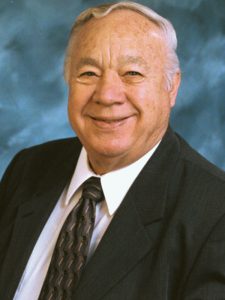|
|
|
Managing Obesity and Metabolic Syndrome |
|
by Tim Gieseke MD
While preparing for presenting on this subject at our recent annual meeting, I was impressed by the overwhelming evidence of the accelerating adverse consequences of being overweight, but also at how rapidly this epidemic has evolved despite the efforts to counter it by providers, the government, weight loss programs, and the payers.
We know that the health risks accelerate with increasing BMI. These risks are further worsened if there are accompanying abnormalities of metabolism (Metabolic Syndrome) best reflected at the bedside by increasing abdominal girth. The 2 other major contributing harmful factors are physical inactivity and a diet rich in dairy products and red meats. Thrown into this mix is evidence that certain ethnic groups like Asians are more susceptible to the adverse effects of being overweight such that the criteria for safe abdominal girth are lower, and the greater risk may be present even at normal weight.
|
|
Read more...
|
|
|
2017 Annual Meeting & Best Practices Summit Review |
|
The 43rd CALTCM Annual Meeting entitled Quality Through Best Practices, and our Pre-Conference, 2nd Best Practices Summit were a huge success! We had record attendance at this years preconference! Both Friday and Saturday were action packed as learners had the opportunity to hear about the Top 5 Best Practices submissions in PA/LTC along with great lectures in our Annual Meeting on the Management of Diabetes, Pain, Depression, Just Culture and Patient Safety.
Congratulations to KJ Page, RN-BC, LNHA, recipient of the 2017 CALTCM Leadership Award!
We would like to thank Health Services Advisory Group for their collaboration, along with SCAN Health Plan and our generous CALTCM BOD members for their generous donations to support the 2017 Best Practices Summit.
|
|
Read more...
|
|
In Memoriam: Raymond Dann, Sr., MD |
|
 
It is with great sadness that The CALTCM Wave reports the loss of a legendary figure in California’s long-term care community. Dr. Ray Dann, one of the founders of the California Association of Medical Directors (CAMD, CALTCM’s predecessor) in the 1970s, died suddenly on April 22 at the age of 86. He graduated from the University of Cincinnati Medical School in 1957, served in the U.S. Public Health Service, and briefly practiced in Anaheim before moving to San Diego County in 1963.
|
|
Read more...
|
|
CALTCM Annual Meeting is Less than 2 Weeks Away |
|
by Heather D’Adamo, MD
Folks, it’s that great time of year again – time to register for the CALTCM 43rd Annual Meeting, Quality Through Best Practices, the California Long Term Care event of the year. This meeting just keeps getting better and better and this year is no different.
Don’t Miss This! We are kicking it off with our Best Practices Summit Pre-conference QAPI in Action, which was a big hit last year. This year, we have incorporated your feedback and made it even better. For example, you’ll hear about all 5 projects, instead of just 3.
Bring your team. You can warm up your own QAPI chops with presentations on resources and strategies for quality improvement. And then, like last year, you and your team will be able to work on your own quality improvement projects with the help of our QI mentors, so you too can make improvements and maybe bring your project to present next year. Our best presenters will even go home with an Award, courtesy of HSAG and SCAN Health Plan. The Best Practices Summit’s 4.75 CME are virtually free (you just pay a small fee for lunch).
|
|
Read more...
|
|
Can a Checklist Improve End-of-Life Care? |
|
by Timothy L. Gieseke, MD, CMD
I recently had a tragedy occur for one of my patients who was actively dying. I thought I had done everything possible to insure a “good death” and felt the family and facility team were on board with the care plan. However, when the patient appeared in distress in the early morning hours, his nurse (a recent graduate) reviewed his POLST Form of several months prior and noticed that it specified Attempt CPR and Full Intensity treatment. The POLST had not been updated when there was a change of condition or of the goals of care. The physician on call that night did not know anything about the resident. With the on-call doctor’s approval, the patient was understandably transferred to the closest hospital (not the one that knew him). He was intubated, placed in the ICU, and then his spouse was called. She was understandably angry, requested comfort- focused care, and the patient died later that day.
|
|
Read more...
|
|
|
|
|
<< first < Prev 21 22 23 24 25 26 27 28 29 30 Next > last >>
|
|
Page 23 of 78 |